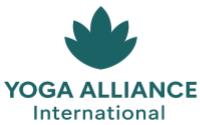Recognition for Yoga Teachers and Schools Based on Skills, Experience, and Training — Not Bureaucracy.
 Why Yoga Alliance International Is Redefining Yoga Teacher Certification
Why Yoga Alliance International Is Redefining Yoga Teacher Certification
The yoga world is changing fast. Yoga Alliance International (YAI) is leading that change by reshaping yoga teacher certification. In cities like Victoria BC and Vancouver BC, more students and teachers are exploring this new model. YAI is not just another registry. It is redefining how teachers get certified, how schools are recognized, and how yoga grows worldwide.
This blog explores why YAI matters today, how it challenges old systems, and what it means for Canadian yoga teachers.
Traditional Registries Have Failed Modern Yoga Teachers
For years, yoga teachers relied on large registries like Yoga Alliance USA or Yoga Alliance Canada. These groups mostly acted as directories. Teachers paid yearly fees to be listed on a website. The registries gave little in return beyond a logo and limited recognition.
In Victoria BC and Vancouver BC, many teachers found this model frustrating. Registration did not guarantee real support, affordable training, or global credibility. Teachers still had to fight for visibility, create their own networks, and justify their certification to studios or employers.
Yoga Alliance International offers something different. It provides actual certification, not just registration. That difference is critical for modern teachers who want meaningful recognition. With YAI, teachers show that they passed assessments and exams. They demonstrate skill, not just attendance at a registered school.
This new model helps teachers in Canada stand out. Studios in Vancouver and Victoria see real credentials, not just payment for a listing. Students searching for teachers in British Columbia recognize the value of international certification.
Yoga has grown into a global career path. Teachers need more than a registry logo to thrive. YAI delivers that shift by offering certification that adapts to the modern world of yoga.
Why International Certification Matters for Canadian Teachers
Local certification alone often limits teachers. In Victoria BC, a yoga teacher may train at one studio and register with a Canadian registry. But that does not mean their certification is respected worldwide.
In Vancouver BC, where yoga attracts international visitors and diverse communities, this limitation becomes obvious. Students from Europe, Asia, or the US may not recognize Canadian-only credentials. Teachers must then explain themselves repeatedly. That weakens credibility and reduces professional opportunities.
Yoga Alliance International bridges this gap. Certification is recognized in multiple countries. Teachers in Vancouver or Victoria can present their credentials with confidence anywhere. They can apply to studios abroad, lead retreats, or expand into online global platforms.
International certification also brings status. Students view internationally certified teachers as more professional and trustworthy. This increases class attendance and builds stronger reputations. For Canadian teachers, that recognition helps grow both local and online businesses.
Another advantage is mobility. Many teachers in Vancouver and Victoria dream of teaching abroad. Whether in Bali, Costa Rica, or Europe, YAI certification makes the transition smoother. Global recognition means fewer obstacles when applying for teaching roles.
With yoga evolving into an international industry, teachers need international standards. Yoga Alliance International ensures Canadian teachers are not left behind.
How Yoga Alliance International Supports Teachers Beyond Certification
Most registries stop at registration. They collect dues, issue a logo, and leave teachers to navigate the rest. This leaves many yoga teachers in Victoria and Vancouver without guidance or ongoing support.
Yoga Alliance International takes a broader approach. Certification is the foundation, but YAI also builds a professional community. Teachers gain access to continuing education, mentorship, and affordable resources.
Support includes online training opportunities, community networking, and updated teaching tools. This matters in Vancouver, where competition among yoga teachers is strong. Ongoing education helps teachers stand out by deepening their skills and confidence.
In Victoria, where yoga communities are smaller and more personal, support networks reduce isolation. Teachers can connect with peers worldwide. They learn how others succeed in different regions and markets.
YAI also values inclusivity. Unlike traditional registries that require training only from approved schools, YAI certifies teachers based on real ability. Assessments ensure fairness and open the door for teachers from diverse backgrounds.
This approach empowers Canadian teachers who may have non-traditional training paths. Instead of being locked out, they can demonstrate skills through YAI’s exam-based process.
In short, YAI goes beyond paperwork. It helps teachers grow careers, maintain credibility, and stay connected long after certification. That sets it apart from other yoga organizations.
Why Vancouver and Victoria Are Ready for This Shift
Both Vancouver and Victoria are strong yoga hubs. Vancouver is known as one of the top yoga cities in North America. Victoria offers a more intimate but growing yoga scene. Both cities share one challenge: teachers need to stand out in crowded markets.
In Vancouver, yoga studios are everywhere. Students have endless choices. Teachers often struggle to prove why they are different. Certification with Yoga Alliance International gives them a clear advantage. It signals that they meet international standards, not just local expectations.
In Victoria, word-of-mouth drives community trust. Teachers with YAI certification can highlight their unique qualifications to attract students seeking professional, safe instruction. Parents, newcomers, and wellness-focused students are reassured by the international recognition.
Another factor is tourism. Both Vancouver and Victoria attract global visitors. Cruise ships dock in Victoria. Vancouver hosts international events year-round. Tourists looking for yoga often value internationally recognized credentials. Teachers with YAI certification can market to this audience with ease.
The west coast is also a hub for retreats, workshops, and wellness festivals. Teachers with YAI certification are more likely to be invited as facilitators. Their international credibility reassures event organizers and participants.
Both cities are ready for this shift. Yoga Alliance International is the certification that matches their growth, diversity, and global connections.
How YAI Certification Improves Student Confidence
Students today are informed consumers. They research their teachers before attending classes. Many in Victoria and Vancouver expect clear proof of a teacher’s training.
Traditional registration models often fail here. A student may not understand what a registry logo means. They may question whether the teacher actually passed assessments. That uncertainty can reduce class trust.
Yoga Alliance International changes that perception. Certification signals that the teacher met international standards through testing and evaluation. Students in Vancouver and Victoria feel reassured knowing their teacher is not only registered but certified.
Confidence builds loyalty. When students trust their teacher’s credentials, they return more often. They also recommend classes to friends. In a city like Vancouver, where competition is fierce, reputation drives success.
Certification also helps in sensitive areas like therapeutic yoga. Students want assurance that their teacher knows anatomy, safety, and adjustments. YAI certification shows a higher standard of accountability.
Students in Victoria, often drawn to smaller community studios, value personal trust. YAI certification strengthens that bond. It shows the teacher respects safety and international best practices.
In both cities, certification means more than credentials. It builds a culture of trust, professionalism, and student confidence. That culture benefits the entire yoga community.
Why This Matters Under Google’s New Search Updates
Google now prioritizes content that is helpful, trustworthy, and authoritative. Low-quality or repetitive content falls behind. For yoga teachers and schools in Victoria and Vancouver, this matters greatly.
Blogs and websites must prove expertise and reliability. Simply claiming certification is not enough. Teachers need to show they belong to organizations that reflect authority.
Yoga Alliance International supports this. Teachers and schools can use YAI certification to demonstrate credibility. This matches Google’s new focus on E-E-A-T: experience, expertise, authority, and trust.
When potential students search for “yoga teacher training Vancouver” or “yoga classes Victoria BC,” Google looks for signals of quality. Websites that highlight international certification gain more trust. They rank higher because they align with user expectations.
For yoga schools, the advantage is even greater. A YAI-certified school signals to Google and students that it follows high standards. This improves both search engine ranking and conversion rates.
As search evolves, teachers in Canada must adapt. YAI certification provides a competitive edge by aligning with how Google now rewards trustworthy content.
Conclusion: Why Yoga Alliance International Is Redefining Yoga Teacher Certification
Yoga Alliance International is not just another registry. It is reshaping how yoga teachers are certified, supported, and recognized worldwide. In Vancouver BC and Victoria BC, this new model creates opportunities for teachers to thrive, gain credibility, and build trust.
By moving beyond outdated registries, YAI offers real assessments, ongoing support, and international credibility. Students benefit from higher standards, and teachers gain stronger reputations.
In a world where both yoga and online search evolve rapidly, YAI sets the pace. It provides the authority, trust, and professionalism that students and studios expect today.
That is why Yoga Alliance International is redefining yoga teacher certification — and why Canadian teachers should take notice.

